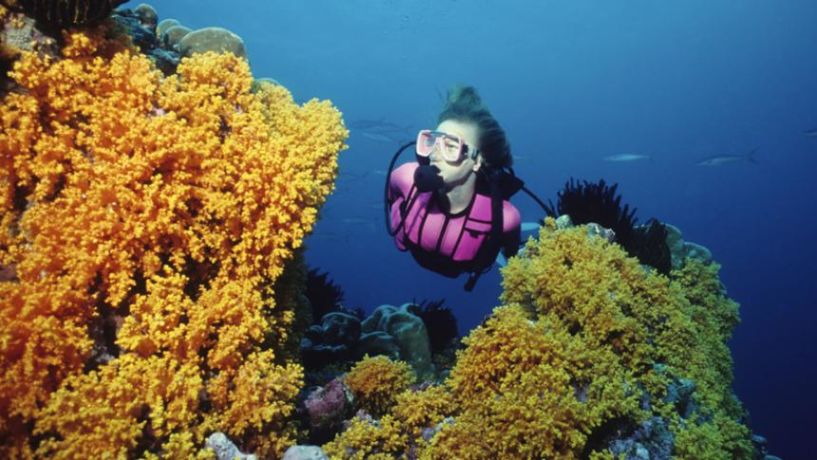Scuba diving is a fascinating and addictive hobby – whether your passion is wrecks, reefs, or rainbow cod. And whether you’re a professional diver or just an enthusiastic amateur, there’s going to come a time when you want to pack up your own trusted diving equipment and take it on holiday with you. There’s nothing quite like the peace of mind of using your own gear – and the saving on rentals can be quite extensive.
While it’s not as much of a problem as you may first imagine, taking a flight with your scuba equipment also involves more than simply packing a bag and expecting to check it at the airport as excess luggage.
Shop Around for a Flight
Firstly, it must be said that, as with any oversized or unusual sporting gear, every airline will have its own policy – and they can vary greatly. Do some research before you even look into flights to see which airline offers the most generous basic luggage allowance or has special consideration for sportspeople with heavy or odd-shaped baggage. If you’re travelling to a destination that’s particularly popular for diving, you may have a choice of several airlines that factor this in and offer generous allowances for divers.
Make Life Easy
As soon as you’ve booked your flight it is time to organise your airport transfers to your final destination as well. Rather than pay for expensive taxis or struggle on public transport (which is not usually readily available anyhow at many exotic diving locations), book a private or shared shuttle to get you and your scuba equipment to your accommodation quickly and easily. We are all used to transporting sensitive equipment, and as long as you let us know what you’re bringing beforehand you won’t face any delays or extra expense.
Packing Your Scuba Gear
If you’re going to travel with expensive diving equipment it definitely pays to invest in a decent bag specifically designed for the purpose. Some seasoned divers recommend choosing a non-descript black bag rather than a brightly coloured ‘trendy’ one so as not to draw attention to expensive gear inside.
A hard bag with wheels offers the most protection, but is also the most expensive and weight can be an issue. Soft gear bags are the most popular choice and there is a vast range from which to choose, so make your decision based on budget, weight and capacity (work out exactly what pieces of equipment you’re taking and what you can perhaps rent cheaply). A luggage strap around both a hard and soft bag is also a must as an added security against splits or breakages.
What to Pack and How to Pack It
Hazardous and flammable goods regulations mean you won’t be flying with your air tanks, and weights are another piece of equipment feasibly left at home! Pretty much anything else can come with you as long as you pack smart (so make sure that you don’t pack your dive knife in your carry-on luggage, for instance, or it will be confiscated).
Whether you choose a specialised dive bag or simply a rolling ‘duffel’ style bag, all your gear should be packed in firmly and insulated with your wetsuit or other clothing to reduce movement. Your buoyancy compensator, flashlights, masks, fins, wetsuits and accessories like slates, tank bangers, and defogger should all fit into a medium sized bag with no problem.
More sensitive equipment like your regulator, diving computer (with battery removed for safety), and expensive prescription masks should always be taken on as hand luggage.
At the Airport
If you’ve done your research when choosing your airline you shouldn’t be in for any nasty surprises at check in, but make sure you arrive early or check in online so you can just head straight for the bag drop. One very important tip is to weigh your bags at home before you leave. You don’t want to find out at the airport that you are 10 kilos over your allowance where you would face either paying a horrendous excess charge or offloading some of your important equipment.
Shuttle Direct – The Best for Divers
At Shuttle Direct we’ve had years of experience transporting satisfied clients to and from the destinations for their diving holidays. Our fast and convenient airport transfers can accommodate your specific needs, and our friendly drivers will be at the airport to meet you with a smile! When you land we can get you and your equipment safely to your destination so that you can get stuck into that diving adventure – hassle free.
Keep Us in the Know
There’s no problem for us to take your diving equipment on our vehicles, but if you are planning to travel with diving gear you must let us know at the time of your service booking in order for us to dispatch the appropriate vehicle for your requirements. If you have any questions at all, simply contact our Customer Care team who will be happy to help.




